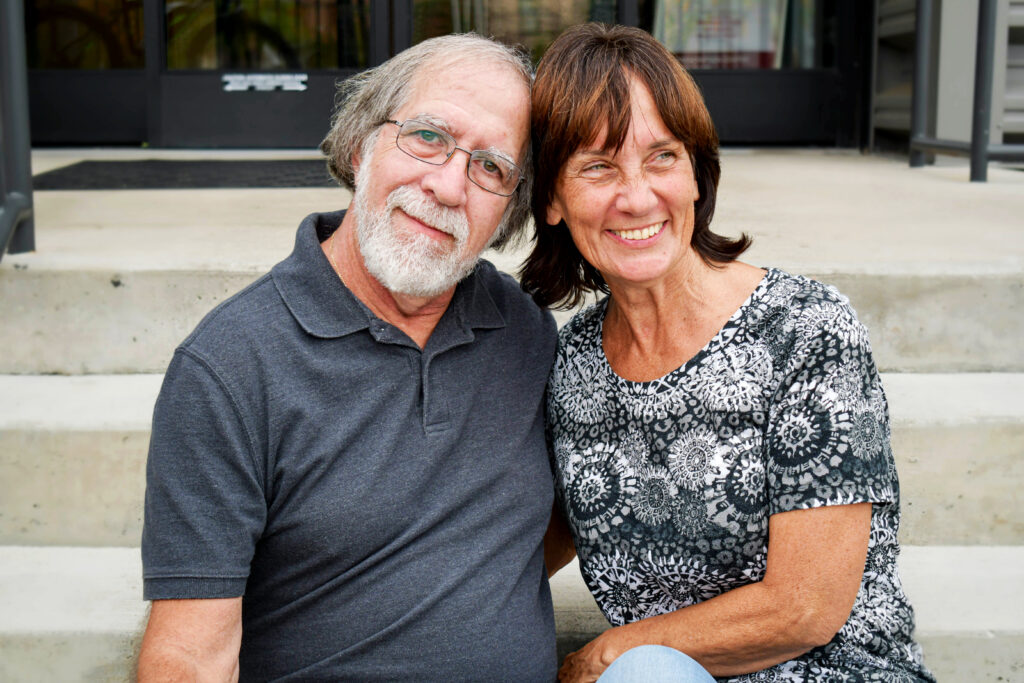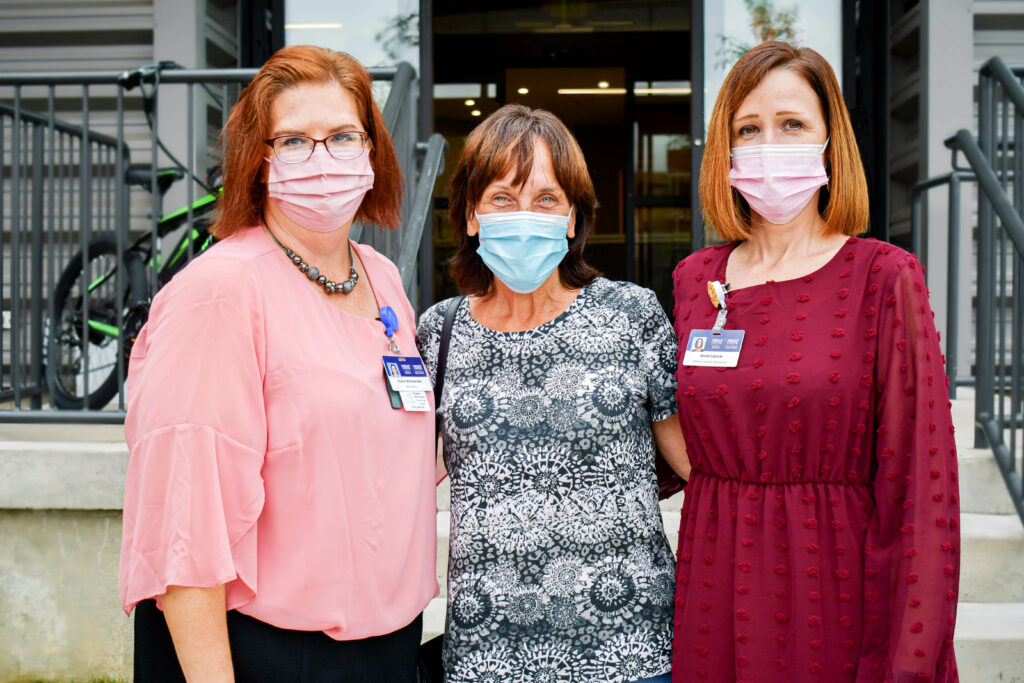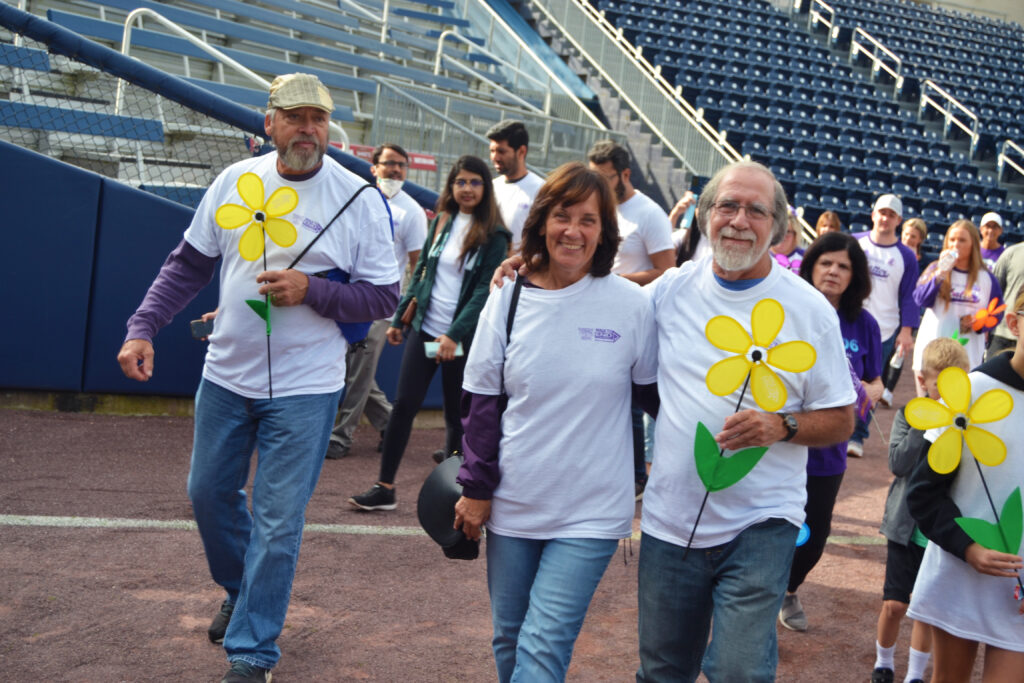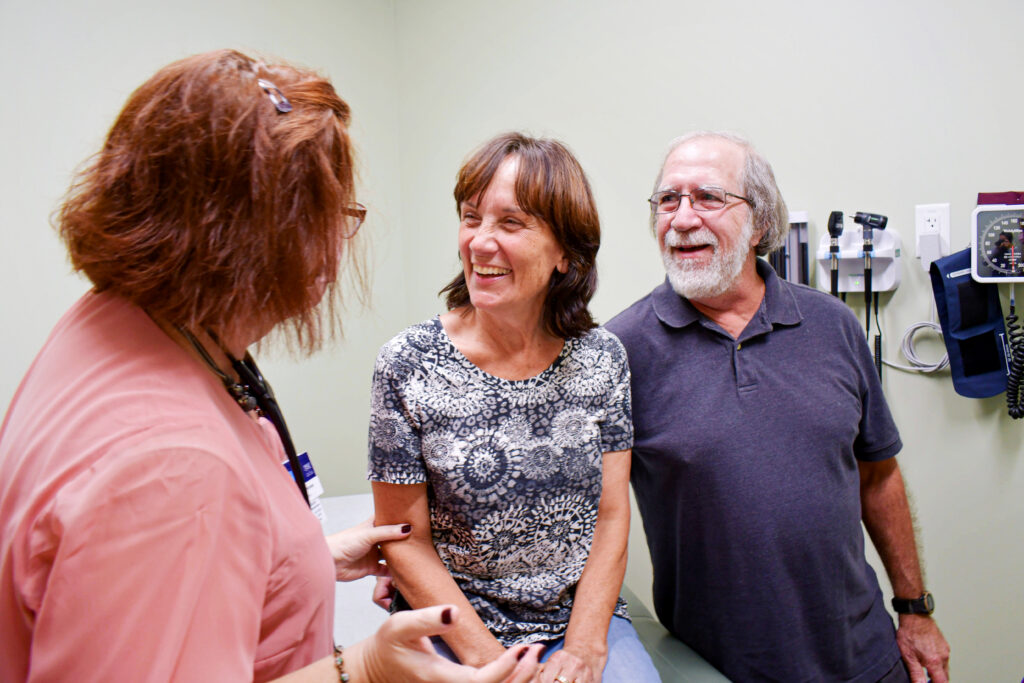News
Alzheimer’s and Dementia Care Program customizes help for patients – and caregivers

Throop couple finds answers, support and services by connecting with The Wright Center’s team
The full extent of his wife’s memory lapses became clear to John P. Warnero on a snowy morning in 2015 when he stepped outdoors to shovel.
He discovered the couple’s car shrouded in a blanket of new-fallen snow, parked in the driveway of their Throop home where it had been all night, with its engine still running.
“She forgot to shut it off,” he says. “It ran for 12 hours straight.”
A former cabinet maker, John, 67, now serves as MaryEllen Warnero’s main caregiver, assisting and sometimes agonizing as she grapples with the relentless and dastardly progression of early-onset dementia, presumably caused by Alzheimer’s disease.
More than 280,000 Pennsylvanians are living with the disease, according to the Alzheimer’s Association, which calls the situation in the commonwealth a “growing public health crisis” due to “escalating” cases.
Alzheimer’s disease affects a person’s memory, thought and language. The degenerative brain disorder is one of the nation’s leading causes of death. A half-million people in Pennsylvania, including spouses like John, serve as family caregivers for their loved ones, doing their best to help with daily living activities and provide nurse-like assistance, often for no pay.
To support Northeast Pennsylvania families like the Warneros, The Wright Center for Community Health last year introduced an Alzheimer’s and Dementia Care Program. It offers a range of health and supportive services to improve the quality of life of individuals with dementia and their caregivers.
Caregivers, for instance, can learn best approaches for improving safety in the home, encouraging routine bathing and decreasing patient agitation. Medication management also is available. And a caregiver support group meets twice a month, according to Nicole Lipinski, R.N., director of The Wright Center’s Geriatric Service Line.
The Wright Center for Community Health’s team also makes referrals to community-based groups in Lackawanna County and surrounding areas, connecting individuals with the services and the items (such as wander bracelets and free incontinence pads) needed at various stages.
To participate in the Alzheimer’s and Dementia Care Program, it is not necessary for an individual to switch to a Wright Center doctor. A patient can stay with an outside doctor or specialist, but benefit from the program’s co-management model that emphasizes comprehensive and coordinated care. The Wright Center is one of only eight health systems in the nation to adopt the award-winning program model that was created at the University of California, Los Angeles (UCLA).

The program offers solutions to caregiver stress and takes into account factors such as each person’s specific medical and behavioral health needs and cultural traditions, says Sharon Wittenbreder, C.N.P., a certified registered nurse practitioner at The Wright Center. “We customize the plan of care,” she says, “according to the unique individual – both the patient and the caregiver.”
John was a featured participant during last month’s Walk to End Alzheimer’s fundraising event at PNC Field in Moosic, where he credited The Wright Center’s team for its assistance and called out by name MaryEllen’s longtime physician, Dr. Linda Thomas-Hemak.
“The Wright Center’s team is constantly offering tips on communicating better with my wife, promoting healthy snacking to counteract her sweet tooth and other issues that caregivers like me encounter,” he says.
When John’s caregiving duties get especially difficult, draining his energy or fraying his emotions, he can also tap into his other support system: his family.

Each of the couple’s two children offers him periodic respite by staying with MaryEllen so that he can try to recharge, or at least retreat to his woodworking shop to pursue his hobby of making decorative windmills and lighthouses. One day this autumn, his daughter spent hours with MaryEllen while his son took him fishing. The get-away was enjoyable. “But when you come back home,” says John, “reality is right where it was.”
The inescapable reality for John is that his partner of 48 years is gradually slipping away, and there’s nothing that medical science currently can do to stop it. Certain interventions might slow the pace of Alzheimer’s disease in some individuals, preserving memory and daily functioning for a longer time, but there is not yet a cure.
John and MaryEllen were drawn to each other as teenagers. She sang in a country/folk band, and they both attended concerts in Dunmore. A few years later, they married. MaryEllen held various jobs during young adulthood, including as a professional in a bank’s human resources office. While still in her 50s, however, she began showing dementia symptoms.
Initially, it wasn’t clear what was happening. At first, because MaryEllen had developed difficulty with following instructions, she made an appointment to have her hearing tested. Her hearing was perfect. Only later, after visits with a neurologist, did MaryEllen receive the dementia diagnosis. As the news was delivered, she cried. And so did John.
The disease torments them both.
For MaryEllen, it has caused frustration and changes in personality. “I think that’s the worst part of her Alzheimer’s disease,” says John, “is her getting very angry with me – the caregiver.
Now 65, MaryEllen visits The Wright Center about once a month. John accompanies her and serves as chauffeur, because she no longer can safely drive. Most recently, The Wright Center’s team has been working with the duo to supply tips and strategies for stabilizing MaryEllen’s symptoms. They’ve also connected John with Telespond Senior Services, a Scranton-based nonprofit organization that operates an adult day care and offers in-home services, both of which can give caregivers necessary breaks.

For now, John’s support network is allowing him to care for MaryEllen in their home and to maintain his perspective and patience, even amid the most difficult and heart-wrenching of circumstances.
“Those bursts of anger are not her fault,” says John. “It’s the disease that’s doing all this.”
For information about the Alzheimer’s and Dementia Care Program at The Wright Center for Community Health, visit TheWrightCenter.org or call 570-230-0019.








